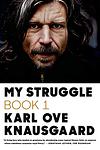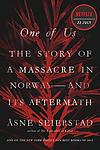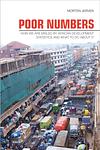The Greatest Norwegian, Colombian "Nonfiction" Books Since 1980
Click to learn how this list is calculated.
This list represents a comprehensive and trusted collection of the greatest books. Developed through a specialized algorithm, it brings together 300 'best of' book lists to form a definitive guide to the world's most acclaimed books. For those interested in how these books are chosen, additional details can be found on the rankings page.
Genres
Countries
Date Range
Reading Statistics
Click the button below to see how many of these books you've read!
Download
If you're interested in downloading this list as a CSV file for use in a spreadsheet application, you can easily do so by clicking the button below. Please note that to ensure a manageable file size and faster download, the CSV will include details for only the first 500 books.
Download-
1. The Bookseller of Kabul by Asne Seierstad
This book provides an intimate and eye-opening look into the everyday life of an Afghan family. The narrative follows a bookseller in Kabul, who despite the oppressive Taliban regime, courageously continues his trade. The story delves into his family dynamics, the struggles of his two wives, his children's lives, and the societal norms and customs they navigate. It paints a vivid picture of life in Afghanistan, exploring the themes of love, courage, resilience, and the power of literature.
-
2. My Struggle by Karl Ove Knausgaard
The book in question is an autobiographical novel that delves deeply into the minutiae of the author's life, exploring his personal relationships, emotions, and the everyday experiences that shape his identity. It is a candid and introspective narrative that spans across various stages of his life, from childhood to adulthood, and examines themes such as family, death, love, and ambition. The author's unflinching honesty and detailed prose invite readers to reflect on the complexities of their own lives, as he scrutinizes the ordinary moments that, collectively, define who we are.
-
3. News Of A Kidnapping by Gabriel García Márquez
The book chronicles the harrowing real-life experiences of several journalists who were kidnapped in Colombia in the early 1990s by the Medellín drug cartel, led by Pablo Escobar. The narrative delves into the psychological and emotional turmoil faced by the hostages and their families, while also exploring the complex political and social landscape of Colombia during this tumultuous period. Through meticulous reporting and personal testimonies, the book sheds light on the pervasive influence of drug cartels on Colombian society and the extreme measures taken by Escobar to leverage his power against the government's extradition policies.
-
4. One Of Us: The Story Of Anders Breivik And The Massacre In Norway by Asne Seierstad
One of Us by Asne Seierstad is a detailed account of the 2011 terrorist attack in Oslo, Norway, carried out by Anders Breivik. The book explores Breivik's background, motives, and planning leading up to the attack, as well as the aftermath and impact on the survivors and families of the victims. Seierstad's thorough research and interviews with those affected provide a comprehensive and emotional portrayal of the tragedy, shedding light on the complexities of extremism and the devastating consequences of hate.
-
5. Ecology, Community And Lifestyle by Arne Naess
"Ecology, Community and Lifestyle" is a philosophical text that outlines the principles of deep ecology, a movement emphasizing the intrinsic value of all living beings and the need for radical shifts in modern human societies to sustain ecological balance. The book delves into the interdependence between human life and the environment, advocating for a comprehensive transformation in our lifestyles and political systems to foster a sustainable relationship with the earth. It combines insights from ecology, philosophy, and sociology to propose a more harmonious way of living that respects the limits of the planet's resources and promotes a thriving, diverse biosphere.
-
6. A Death in the Family by Karl Ove Knausgaard
"A Death in the Family" is a deeply personal and introspective narrative that delves into the complexities of familial relationships, childhood, death, and memory. The protagonist, a writer, is forced to confront his past and his relationship with his alcoholic father after his death. The novel explores the impact of this death on the protagonist's life and his struggle to come to terms with his complicated feelings of love, resentment, and guilt. The narrative is a profound exploration of the human condition, the intricacies of family dynamics, and the lasting impact of grief and loss.
-
7. Poor Numbers by Morten Jerven
This book critically examines the reliability of economic statistics in Sub-Saharan Africa, revealing a significant gap between the reported data and the actual economic realities on the ground. The author delves into the systemic issues plaguing statistical offices across the continent, including underfunding, political interference, and a lack of technical capacity, which collectively contribute to the production of inaccurate economic data. By analyzing the processes and methodologies used to gather and report these statistics, the book sheds light on the profound implications these "poor numbers" have for policy-making, economic development, and international perceptions of African economies. Through this exploration, it calls for a reevaluation of how economic data in these countries is collected and used, advocating for reforms that could lead to more accurate and meaningful measurements of economic progress.
-
8. Lo Que No Tiene Nombre by Piedad Bonnett
The book is a poignant and deeply personal memoir that delves into the heart-wrenching experience of a mother grappling with her son's severe mental illness and eventual suicide. Through a raw and honest narrative, the author explores the complexities of her son's struggle with depression, the impact of his condition on their family, and the profound grief that follows his tragic death. The memoir serves as a meditation on loss, love, and the often misunderstood nature of mental health, offering a touching tribute to her son while also shedding light on the broader issues surrounding mental illness and the challenges faced by those who suffer from it and their loved ones.
-
9. Primera Persona by Margarita García Robayo
"Primera Persona" is a collection of autobiographical essays that delve into the author's experiences navigating the complexities of identity, migration, and cultural dislocation. With sharp wit and unflinching honesty, the author reflects on her life growing up in Colombia, her move to Argentina, and the challenges of establishing herself as a writer in a foreign land. The essays explore themes of family, memory, and the search for belonging, offering a poignant and often humorous look at the intersections of personal history and broader socio-cultural dynamics. Through her narrative, the author invites readers to consider the multifaceted nature of selfhood and the universal quest for connection and understanding.
Reading Statistics
Click the button below to see how many of these books you've read!
Download
If you're interested in downloading this list as a CSV file for use in a spreadsheet application, you can easily do so by clicking the button below. Please note that to ensure a manageable file size and faster download, the CSV will include details for only the first 500 books.
Download






